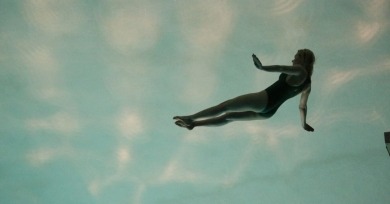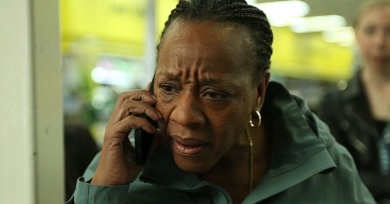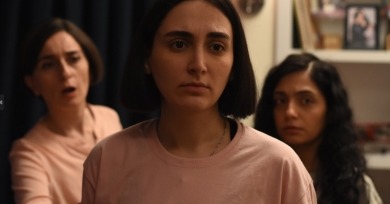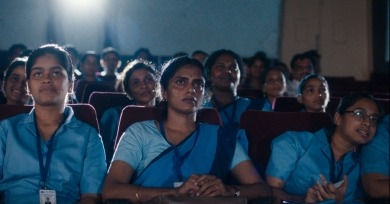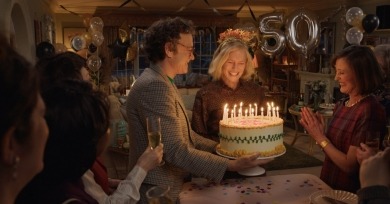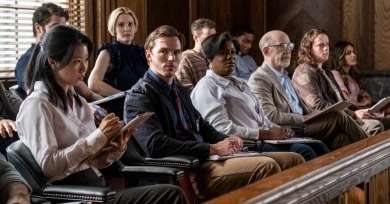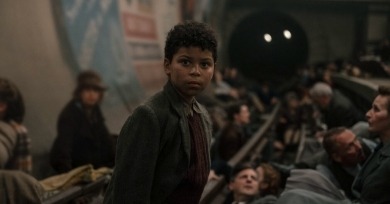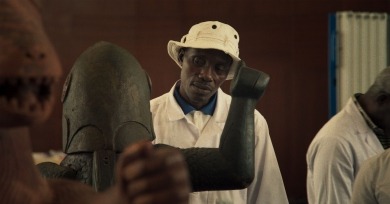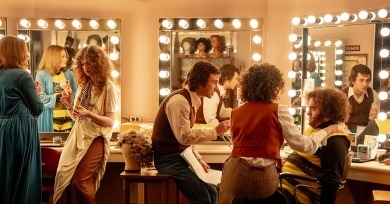Reviews
Self reflexive, political, and experimental, the filmisessentially the Carax take on Histoire(s) du cinéma (1988), in which Godard stitched together clips from hundreds of films in order to create his own critique of the art form.
These killers are seldom forced to face their victims, and because of this, they are free to live in a sanitized world of rationalizations and moral fantasies, remaining comfortable even as the earth and its inhabitants are dying just outside their doors.
Under the cover of blackout curtains, a woman jolts herself awake with a hair-raising shout. She catches her breath, but cannot shake off her ring of panic, the quiver and cold sweat of constant fear. This will be one of the more peaceful moments of her day.
Abrahams frequently shifts aesthetic registers, from stylized vignettes to handheld observation, introspective narration to candid conversation, the heightened past to the quotidian present. Abrahams has explained that she wanted to evoke sense-memory, as if inviting the viewer into her own state of mind.
Mohammad Rasoulof is part of a rich legacy of courageous Iranian filmmakers who have bravely challenged the authority and inevitability of the Islamic Republic, through resistance films that have often left them exiled from the homeland and people their art is fighting for.
In collaboration with Huppert, who has seldom appeared so playful and unguarded, he depicts Iris as supremely attentive and sympathetic to her students, while challenging them to dig deeper and shine a light on the thornier parts of themselves that they tend to keep buried.
Kapadia again expertly maneuvers themes of romance, ambition, and injustice in her second feature, a languid, affectionate triptych of three working women in Mumbai coming to terms with their varying displacements.
His body of work has gotten increasingly whimsical and pedantic; here he substitutes kitchen-sink realism for an aesthetic that feels like a pre-distressed t-shirt.
It is the very aridity of its emotional content, parched to desert-of-the-real levels by de-aging effects that render Hanks and Wright (and several of their co-stars) as weirdly artificial and subject to illusionistic manipulation as their environment, that is so startling—and, for the most part, beguiling.
Eastwood has no illusions about the legal system, but at no point does he suggest that it is rotten. In fact, the story he is telling puts its faith in the personal integrity of public officials and the facing of inconvenient facts.
In the wake of the Small Axe cycle, McQueen now sets out to submit British cultural identity to a stress test during a period of maximum crisis.
In Dahomey, where its namesake country no longer exists in its original form and a community pretty much means all of a new nation’s citizens, the question of who receives the artifacts becomes contentious.
The films of Sean Baker, collectively approaching something like a sexploitation genre unto itself, seem to be trying to split the difference between Hollywood and raw grassroots guerilla cinema, landing on a kind of pop realism that feels aesthetically uniquely his, if hollow at the core.
For better or worse, Aaron Sorkin has made his dramatic metier out of the kind of organized backstage chaos portrayed in Saturday Night; it cannot be understated how strange it is to watch someone poorly imitate his style, draining it of any rhetorical rhythm while retaining the self-importance.
